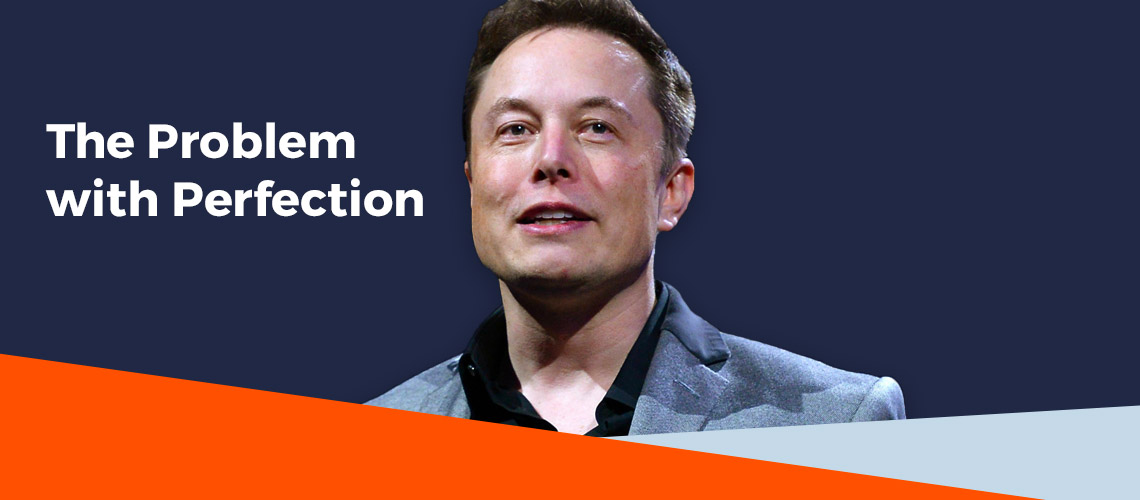Why You Should Try to Ignore Elon Musk’s Call to Ship “Perfect” Products
The product development beliefs of Elon Musk, the mercurial founder of Tesla and SpaceX, can be hard to track. For example, Musk might denounce the value of market research in one interview only to vehemently defend it in another.
On the issue of perfectionism, though, Musk is relatively consistent. At the WSJ CEO Council Summit last December, Musk encouraged leaders to be “absolute perfectionist[s]” when it comes to their products. Similarly, at an Air Force Space Pitch Day in 2019, Elon told attendees to simply imagine the “perfect” product and then go “make that.”
Naturally, when Musk speaks, businesspeople listen. He is, after all, one of the most successful entrepreneurs in the world. Still, Musk’s perfection-oriented messages make Dustin Bruzenak cringe. This is because, as a 20-year veteran in the software development industry and the CEO of the digital product studio Modern Logic, Bruzenak has seen perfectionism hurt more businesses than it has helped. Here’s why he believes that is.
1.) Perfection is slow and expensive
Bruzenak knows that Musk’s messages around perfection inspire many business owners. But he also knows that perfection takes time, which translates directly to costs. “The longer you wait to ship, the more money you burn through,” says Bruzenak. “Do great work, yes, but be practical with the resources you have.”
2.) Perfection is often confused with more features
Most businesspeople, says Bruzenak, have a tendency to overbuild products. They feel that the more their product can do, the better. But this is rarely the case, says Bruzenak, as most users will only use two or three of an application’s core features while the rest go unused. “I don’t advise founders to build low-quality products,” he says, “but I do advise them not to spend a ton of time and money on bells and whistles that add little value.”
3.) Perfection is subjective
Founders like Musk are a confident lot. Many believe they can define the perfect product, and so they are willing to invest heavily and assertively in their visions. But Bruzenak says this is risky. “You can’t know what perfect is until you launch,” he says, “because perfect is something markets confirm and define—not individuals.”
4.) Perfection never plans for failure
Successful business owners don’t go all in on any one bet, or any one perfect product, says Bruzenak, because successful business owners expect successes and failures. “I can tell you that the ‘perfect’ products I’ve helped build fail just as often as the imperfect ones,” says Bruzenak. “It’s just that the owners who invested in the perfect ones are out a lot more money.”
5.) Early on, no one can afford perfection
Did Musk practice polish-it-to-perfection in his early days at Zip2? Before he was a billionaire? Bruzenak suspects the answer is no. “He may look back with rose-colored glasses and say that he always strove for perfection,” says Bruzenak, “but if you went back to his first company, if it came between shipping something imperfect and running out of money, I bet he would have shipped. I bet he would have been a businessperson first and a perfectionist second.”
The takeaway? Perfectionism in product development is risky and expensive. Instead of aiming to ship something perfect, aim to efficiently ship something valuable—something with product-market fit that you can afford to develop and test without risking your financial future. We can help!
